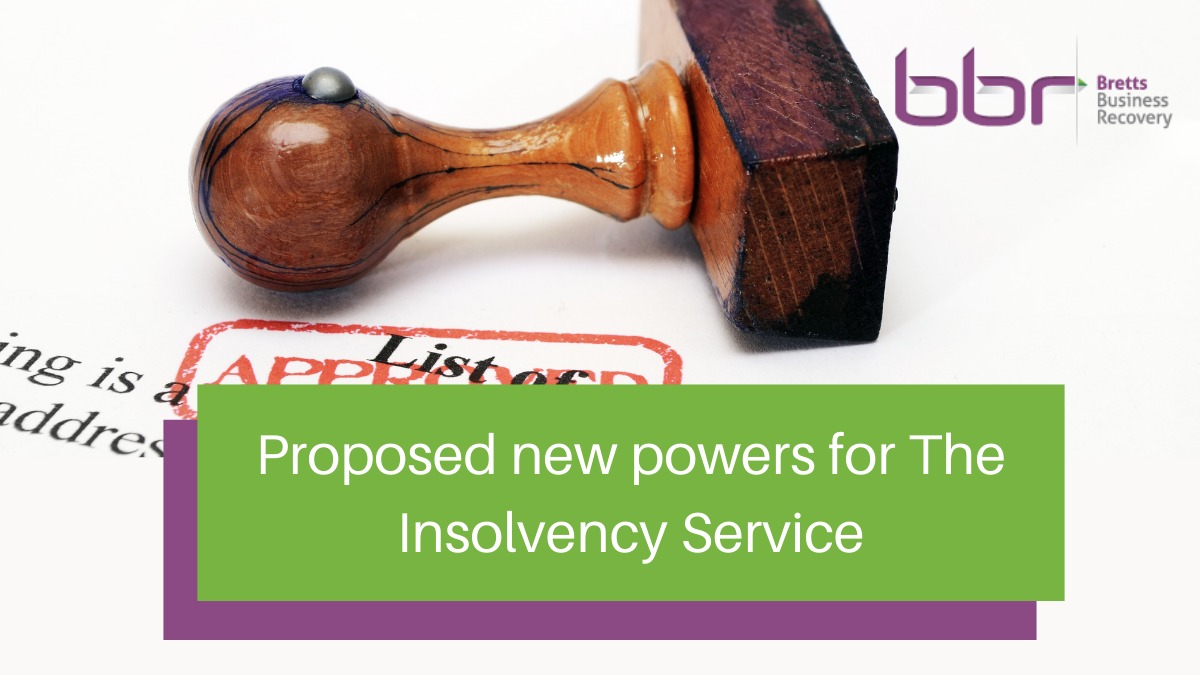Insolvency Service set to be granted powers to investigate Directors of dissolved companies.

Important insolvency legislation changes have been proposed which mean that Directors of dissolved companies, particularly those that have received government support through bounce back loans or CBILS, can be investigated by the Insolvency Service.
The proposed legislation, which was given its first reading in parliament on the 19th May and which is set to become law later this year is a significant step forward in closing the legal loophole which currently allows directors of dissolved companies to avoid investigation and repayment of any overdrawn director loan accounts. It will act as a strong deterrent against the misuse of the dissolution process.
What currently happens when a company is dissolved and how does it differ from formal insolvency procedures?
There are two procedures for companies looking to formally close down; liquidation (a formal insolvency procedure) and strike off (dissolution).
Liquidation, both voluntary and compulsory, is a formal insolvency process wherein the conduct of directors is investigated by the appointed liquidator/Official Receiver and is mandatory in every liquidation. The investigations identify any wrongdoings or malpractice by the directors and, if any are found, the liquidator may bring a claim against the directors for financial compensation for the company and also the directors could face being disqualified to act as a director for up to 15 years.
The dissolution, or strike off process is when the directors of a company complete a DS01 Form and file it at Companies House. Once filed, Companies House will advertise in the Gazette that the company will be struck off from the register and, if no objection is received, the company will be dissolved. This is not a formal insolvency process and the conduct of the directors does not currently get investigated. The dissolution process is designed for companies which are not threatened with an insolvency procedure and haven’t been trading for the preceding three months. Some directors have been using this as an alternative to formally liquidating their company and to avoid paying back overdrawn director loan accounts, in recent times quite often resulting from directors using the BBL/CBILS monies loaned to the Company for personal living expenditure.
Some directors have further misused the process by setting up a near-identical business after the dissolution, leaving customers and other creditors, such as suppliers or HMRC, unpaid.
The new legislation, included in the Ratings (Coronavirus) and Directors Disqualification (Dissolved Companies) Bill, will prevent directors closing a company via a dissolution process without being investigated for any wrongdoing or malpractice. The new measures will grant the Insolvency Service power to investigate the conduct of directors of dissolved companies to help identify any potential wrongdoings; it will also help prevent directors setting up near identical businesses after dissolution. Directors will not be able to dissolve companies with active liabilities going forward and the powers are also set to be retrospective. This means the Insolvency Service will have the power to investigate companies that have already been dissolved but with a government-backed coronavirus loan still outstanding.
Isobel Brett of Brett’s Business Recovery commented:
“This legislation represents a huge change in the insolvency world. It emphasises that although corporate dissolution may be inevitable in some cases, it should only be used as a last resort – after all other realistic formal insolvency procedures have been discounted. Using company dissolution as a mechanism for the evasion of a directors’ duties has no place in responsible business.”
For a company with existing liabilities – whether this is a government-backed Covid loan or other debts– formal liquidation is considered the best closure route for all concerned. Not only does liquidation ensure that outstanding creditors are treated fairly, it also demonstrates a desire on behalf of directors to adhere to their legal obligations once they become aware their company is insolvent. If the company has a viable future despite current challenges, there are a range of rescue and recovery processes which can be explored if there is a desire to turn around the company’s fortunes. This can take the form of a Company Voluntary Arrangement (CVA) which facilitates negotiation with outstanding creditors, or Administration, which provides breathing space while a restructuring of the business is executed.
If you or your clients need help to liquidate your business, please get in touch – the sooner you seek advice, the more options you’ll have available. Similarly, if your business has been dissolved via a dissolution process please contact us for a no-obligation confidential discussion.
For a free initial consultation, please speak to one of our team about how we can help.